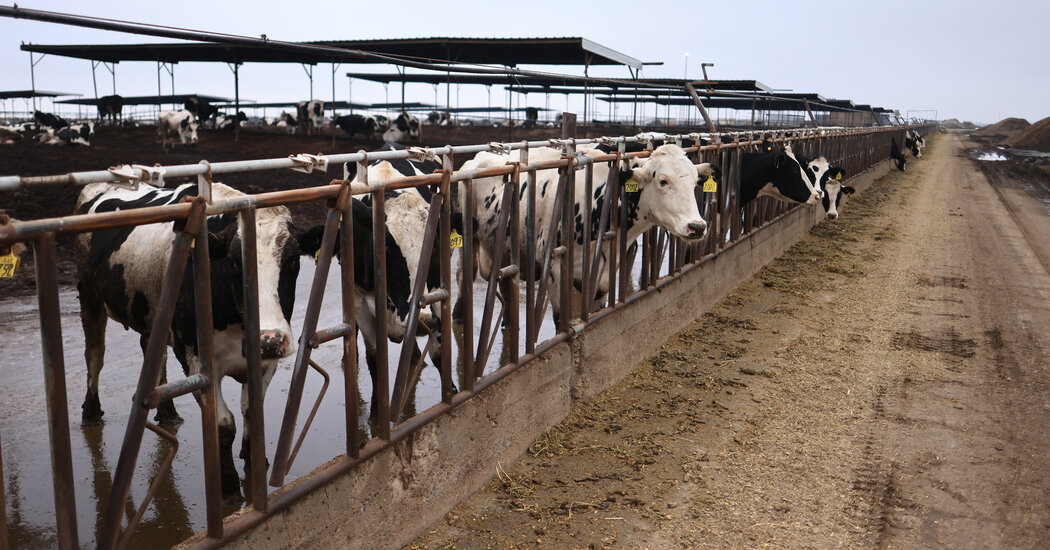Officials have discovered the virus in 645 herds, more than in any other state so far.
California Gov. Gavin Newsom declared on Wednesday that the outbreak of bird flu among the state’s diary cattle constituted an emergency, a stark acknowledgment of the increasing seriousness of the contagion’s spread.
California was not among the first states to detect the bird flu virus, H5N1, in dairy cattle. But since the first identification of an infected herd in late August, the state’s agriculture department has found the virus in 645 dairies, about half of them in the last 30 days alone.
The announcement follows news that an individual in Louisiana has been hospitalized with bird flu, the first severe case of infection identified so far in the United States.
The declaration of an emergency gives state and local authorities the resources they need to contain the outbreak, including hiring staff or issuing contracts.
“This proclamation is a targeted action to ensure government agencies have the resources and flexibility they need to respond quickly to this outbreak,” Mr. Newsom said in a statement.
“While the risk to the public remains low, we will continue to take all necessary steps to prevent the spread of this virus,” he said.
The outbreak in dairy cattle is thought to have begun in Texas early this year. As of Wednesday, 865 infected herds have been identified in 16 states.
The Centers for Disease Control and Prevention has also confirmed H5N1 infection in 61 people, and indicated another seven as “probable” cases.
Only 37 of the 61 cases have been traced to interaction with infected cattle; the remaining are attributed either to exposure to diseased poultry, or are of unknown origin.
Many experts, including those at the World Health Organization, have faulted the U.S. response to the outbreak.
Until recently, nearly all testing of cattle and of people who may be infected with the virus has been voluntary. Bird flu does not yet spread easily among people, but every untreated infection is an opportunity for it to gain the ability to do so, experts have warned.
The Agriculture Department said earlier this month that it would begin testing the nation’s milk supply for H5N1, and would require farmers and dairy processors to provide samples of raw milk on request from the government.
California’s testing and monitoring system is the largest in the nation, as is the state’s dairy industry.
This developing story will be updated.
